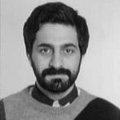|
||||||
| This article originally ran in the Pitt Chronicle, Volume IV • Number 12• April 14, 2003, by Cynthia D. Gordy | ||||||
Fourteen teaching proposals have been selected for funding under the Provost’s Advisory Council on Instructional Excellence’s Fourth Annual Innovation in Education Awards Program. The projects range from developing an online “virtual laboratory” as an aid to mathematics and engineering students to utilizing resin cast replicas of artifacts to enrich archaeology instruction and analysis. Faculty members will share almost $200,000 in funding, awarded to strengthen teaching strategies in a variety of disciplines. “The Advisory Council continues to be impressed with the quality of the proposals and the breadth of submissions from academic units across the University,” said Andrew Blair, vice provost for Faculty Affairs and chair of the council. The awards, instituted in 2000 by Provost James V. Maher, were designed to encourage instructional development and teaching excellence throughout the University’s schools and departments.
Peter Brusilovsky, assistant professor, Department of Information Science and Telecommunications, School of Information Sciences, is one of the winners of this year’s awards. The title of his project is "Educational Software for Teaching and Learning Information Retrieval". This proposal addresses two instructional problems related to information retrieval systems: the difficulty students encounter in trying to understand the basic retrieval models and the need for access to a body of resources or tools with which students can build systems in order to implement these models. The project will build upon, organize, and distribute interactive software tools to improve instruction in the field of information retrieval.
David Robins, assistant professor, department of Library & Information Science, School of Information Sciences and Marian C. Hampton, DLIS adjunct faculty, coordinator of library instruction, Department of Bibliographic Instruction, are two of the winners of this year's awards. The title of their project is “Becoming an Information Critic: A Video Providing Students with the Fundamentals of Information Evaluation.” Recognizing the often overwhelming amount of information available to students via the World Wide Web, the project will produce a video and instructor’s manual to outline for students the process for critically evaluating Web information. The video also will be available on a Web site, which will contain an online tutorial that “walks” users through the evaluative process. An interactive quiz will allow users to test their evaluation skills. The video, instructor’s manual, and Web site can be used in any classroom setting and in any discipline. |
||||||


